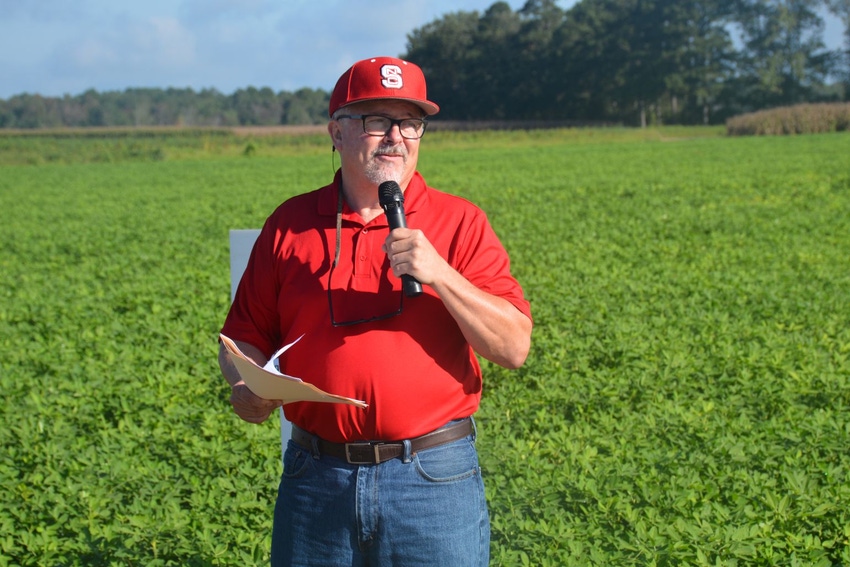
In his final field day as North Carolina State University’s peanut breeder, Tom Isleib announced the release of Bailey II, a high-oleic version of the highly popular Bailey variety that was released in 2008.
“Bailey II is a high-oleic, large-seeded Virginia-type peanut cultivar selected from a series of backcrosses to the Bailey cultivar. It was made in a conventional breeding program at North Carolina State University. It is essentially a high-oleic Bailey,” Isleib explained at the Peanut Field Day at the Peanut Belt Research Station in Lewiston-Woodville Sept. 7. Isleib is retiring in Spring 2018.
Bailey is the most popular peanut variety grown in Virginia and the Carolinas because of its excellent yield potential and strong disease resistance package. Bailey is not high oleic and the peanut industry was calling for a variety that offered the agronomic traits of Bailey that is also high oleic. High-oleic varieties that offer greater shelf life than peanuts that are not high oleic.
Isleib expects that Bailey II will be readily available to peanut growers in three years. Foundation seed of Bailey II will be available from North Carolina Foundation Seed Producers Association in Zebulon.
“In NCSU trials averaged across 24 tests conducted over five years, Bailey II’s yield was greater than those of Sugg and Sullivan. Bailey II’s value was greater than those of Sugg, Sullivan and Bailey. Pod characteristics and grade of Bailey II were mostly similar to those of Bailey,” Isleib said.
In the 21 performance trials in 2014 through 2016 conducted as part of the regional Peanut Variety Quality Evaluation trials, Bailey II had greater yield and crop value than those of Sugg, Sullivan and Bailey.
Bailey II is partially resistant or tolerant to the four most common diseases in the Virginia-Carolina peanut production area: leaf spot, Cylindrocladium black rot (CBR), Sclerotinia blight and tomato spotted wilt.
In addition, Isleib noted that the roasted peanut, bitter, wood/hulls/skin and stale/cardboard attributes of flavor in Bailey II are superior to those of Bailey. “Bailey II also compared well with runner-type flavor standards Florunner, Georgia Green, Georgia 06G and Georgia-09B,” Isleib said.
Isleib will retire as peanut breeder in 2018 and the search is on for his replacement. N.C. State is currently interviewing for the position with an announcement expected by Nov. 1. The new breeder will work closely with Isleib, who will train his successor prior to his retirement in spring 2018.
Isleib, who has directed the peanut breeding program at N.C. State since 1990, will be relocating with his wife Sandy to her native Michigan. At the field day, Isleib was recognized for his contributions to the peanut industry.
About the Author(s)
You May Also Like






